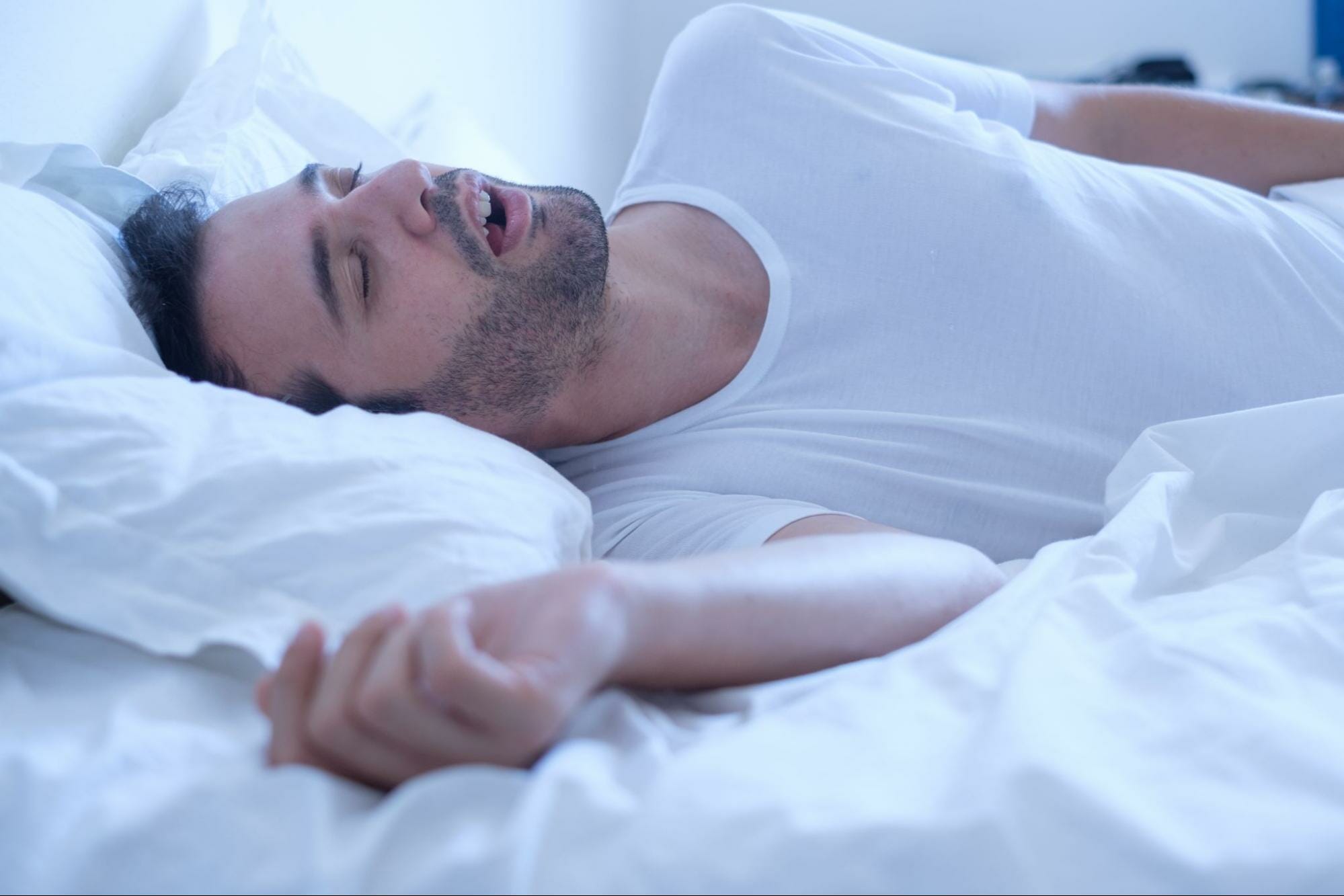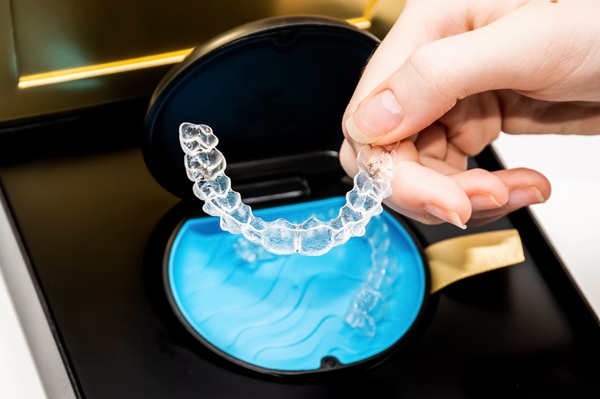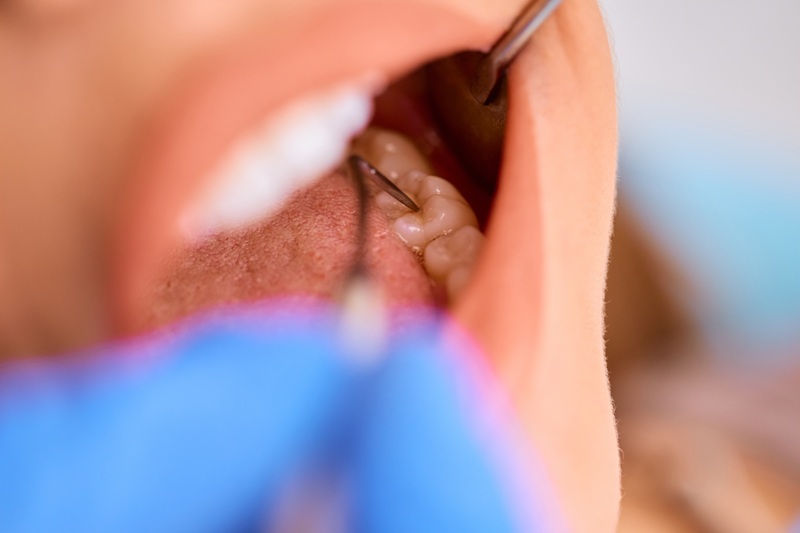Do you often find yourself feeling tired after a full night’s sleep? The reason behind this might be more than just snoring – it could be related to a condition that affects both your rest and overall well-being: sleep apnoea. Snoring and sleep apnoea, often taken lightly, can have a considerable impact on your daily life. From constant weariness to a lack of productivity, the consequences can be both disheartening and overwhelming. Fortunately, there are a range of treatments available to treat snoring and sleep apnoea. In this blog, we’re going to discuss the causes and symptoms of these conditions, along with exploring treating them with oral devices. Read on to understand these common sleep disorders and how you can overcome them to improve the quality of your life.
What is Sleep Apnoea?
Sleep apnoea is caused by repetitive obstruction of breathing during sleep. These obstructions usually occur when the airway becomes partially or completely blocked, leading to a temporary pause in breathing.
There are two main types of sleep apnoea, the most common being obstructive Sleep Apnoea (OSA). It occurs when the muscles at the back of the throat relax excessively during sleep, causing the airway to narrow or close. Many people with OSA are often unaware of these awakenings because they are brief and may not result in full consciousness. Loud snoring is a common symptom of OSA.
Central Sleep Apnoea (CSA) is less common and is caused by a failure of the brain to send the appropriate signals to the muscles that control breathing. Unlike OSA, there is no physical obstruction in the airway. People with CSA may experience periods of shallow or paused breathing during sleep without the characteristic snoring associated with OSA.
Sleep apnoea can disrupt the sleep cycle, preventing the affected person from reaching deep and restful sleep stages. As a result, individuals with sleep apnoea often experience excessive daytime sleepiness, difficulty concentrating, and a range of health issues including high blood pressure, cardiovascular problems, and an increased risk of accidents due to impaired alertness while awake.
Symptoms of Sleep Apnoea
Some of the symptoms of sleep apnoea include:
- Loud and Persistent Snoring.
- Pauses in Breathing:
- Excessive Daytime Sleepiness
- Morning Headaches
- Difficulty Concentrating and Memory Problems
- Irritability and Mood Changes
- Dry Mouth or Sore Throat
- Decreased Libido
- Restless Sleep and Insomnia
Not everyone with sleep apnoea may experience these symptoms. Some of them, like snoring and daytime sleepiness, can also be associated with other sleep disorders or health conditions. If you suspect you have sleep apnoea or are experiencing any of these symptoms, it’s recommended to consult a healthcare professional to determine the underlying cause and guide appropriate treatment options.
What Causes Snoring?
Snoring is a sound produced by turbulent airflow, which causes tissues to vibrate during sleeping. This loud breathing develops when there is a barrier to the free movement of air via the channels at the back of the mouth and nose.
Some of the factors that may cause snoring include:
- Nasal congestion
- Poor muscle elasticity in the throat and tongue
- Obesity-related bulky throat tissue
- Long soft palate or uvula obstructing the airway
How To Treat Snoring And Sleep Apnoea with Oral Devices
There are a range of treatment options to treat sleep apnoea and snoring, such as Continuous Positive Airway Pressure (CPAP) or Bi-level Positive Airway Pressure (BiPAP). Both these treatments involve using machines to deliver air through a mask to keep the airways open and are generally used for more severe cases of sleep apnoea.
Oral devices, also known as Mandibular Advancement Devices (MADs) or mouthguards, on the other hand, are less invasive and help treat moderate cases of sleep apnoea. They work by helping to move the lower jaw and tongue forward, effectively expanding the upper airway. This lowers the chance of airway blockage and promotes smoother airflow during sleep. These changes not only ease sleep apnoea symptoms but also help reduce snoring.
Oral devices are custom-made for your mouth and are adjustable, allowing for changes based on your comfort and more successful treatment outcomes.
At Bellevue Hill Dental, we offer the Oventus Clearway DeviceTM (O2Ventᴿ). This 3D lightweight nylon mouthguard is designed to enhance airflow by bypassing obstructions caused by the nasal, soft palate, and tongue issues, providing a comfortable way to improve oxygen flow and restful sleep.
Choosing the Right Oral Device
An oral device should be selected carefully and in consultation with your dentist and healthcare provider. Here are some factors that should be considered to before choosing an oral device:
Type of Sleep Apnoea: Oral devices are generally most effective for obstructive sleep apnoea (OSA). If you have central sleep apnoea (CSA) or a combination of both types, consult your healthcare provider to determine if an oral device is appropriate.
Severity of Sleep Apnoea: Oral devices are typically recommended for mild to moderate cases of OSA. Severe cases may require more intensive treatment options. A sleep study can help determine the severity of your sleep apnoea.
Dental Health: A thorough dental examination is necessary to ensure that you are a suitable candidate for an oral device. Good oral hygiene and a well-maintained dental structure are important for long-term use.
Customisation: Oral devices should be custom-made to fit your mouth comfortably A dentist will take impressions and measurements to create a device that suits your anatomy.
Comfort and Convenience: Some people find oral devices more comfortable and easier to tolerate than CPAP machines. However, individual comfort can vary. Make sure you’re comfortable wearing the device for extended periods, especially during sleep. Moreover, Oral devices are small and compact, making them easy to carry. If you’re a frequent traveller, an oral device may be a better option than bulky CPAP machines.
Adjustability: Some devices are adjustable, allowing for gradual changes in jaw position to find the optimal setting for reducing sleep apnoea events. This can be helpful for maximising effectiveness and comfort.
Compliance: Ensure that you’re committed to consistently using the oral device as recommended by your dentist.
Side Effects: Oral devices may cause side effects such as jaw discomfort, tooth movement, or changes in bite alignment. Discuss potential side effects with your dentist and strategies to minimise discomfort before treatment.
Cost: Oral devices can vary in cost. Consider the initial expense, follow-up costs, and any potential repairs or replacements.
Alternative Treatments: Consider other treatment options, such as lifestyle changes and sleep therapy to find a lasting solution.
Say Goodbye to Sleepless Nights with Our Sleep Apnoea Therapy
At Bellevue Hill Dental, we take a personalised approach to dentistry, taking the time to listen to you and understand your concerns. We consider everything from your dental and medical history, lifestyle, and budget to provide tailored solutions that are practical, convenient and aimed at long term results. If you’re struggling with sleep apnoea, snoring or any other dental problem,book a consultation with our friendly dentists today.



